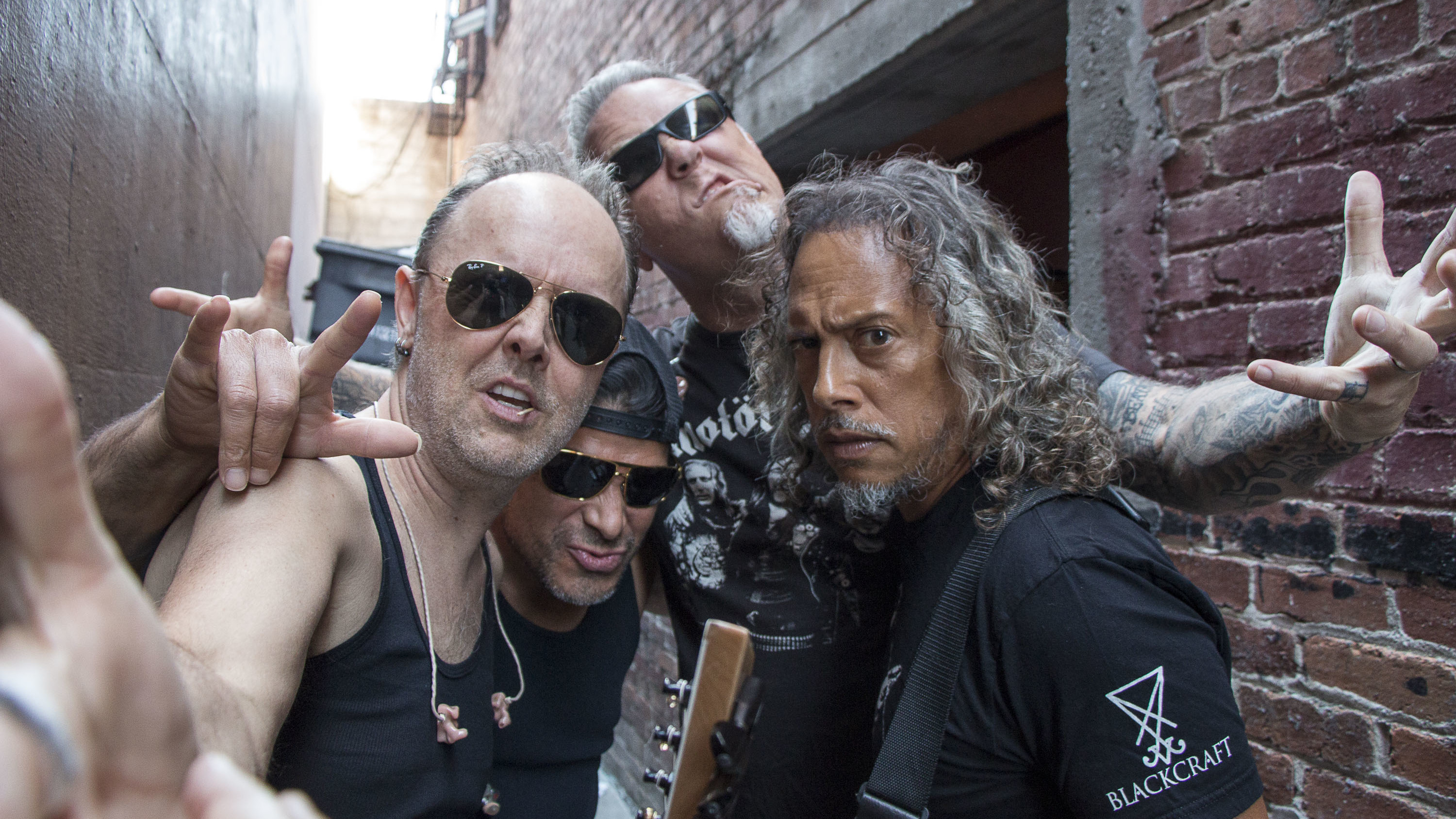Every generation has its icons, that handful of unassailable bands whose arrival heralds a musical and cultural step-change, and whose success is matched by their influence. In the early 1970s, it was Led Zeppelin and Black Sabbath. A decade later, it was Iron Maiden. And then came Metallica.
For the last 30 years, the San Francisco giants have been the benchmark by which every metal band is judged. The 100mph rush of their early days ushered in a new era for metal, but it was third album Master Of Puppets – released just a few months before the first issue of Hammer – that took them to another level.
“That was the record that changed things, sure,” says Lars Ulrich today. “It opened up doors to all these places we didn’t know existed. We were touring with Ozzy, we were starting to get famous, we were starting to be accepted by people who weren’t the denim and leather kids.”
For the first half of their career, Metallica barely put a foot wrong. Master Of Puppets led, via the prog-metal excursions of …And Justice For All, to The Black Album – still the biggest pure-metal album ever released – and tours that circled the world more times than a Russian spy satellite.
But sometime around the mid-90s,things started to go wrong for this once-bulletproof band. The unexpected one-two of Load and its companion album Reload wrongfooted fans who expected the Even Blacker Album. Today, those two records stand up way better than their detractors would have you believe.
But then the wheels really started to come off the wagon. The band’s run-in with Napster may have come from a well-intentioned place (well, would you want someone else sharing your life’s work with the world without your permission?) but was cack-handedly executed – no one can get forget the sight of a grim-faced Lars delivering thousands of paper files to a courthouse. Indignity was heaped on indignity as the band fractured during the recording of 2003’s poorly received St. Anger – a time of upheaval captured in the must-see documentary Some Kind Of Monster. And while 2008’s Death Magnetic album was a resounding success, their infamous collaboration with Lou Reed, Lulu, wasn’t; ditto their loss-making movie Through The Never.
“We had a few wobbly years,” admits Lars. “We were definitely experimenting musically, and we were trying to figure it all out. But you’ve gotta be able to take chances to make yourself happy.”
- The 12 Best Metallica Memes
- Metallica announce new album Hardwired… To Self-Destruct
- Metallica on the moon? 8 festivals science will eventually make possible
- The 10 least-played Metallica songs
But then that’s the thing about Metallica. Love or hate what they’ve done, they’ve never, ever done anything to please anyone other than themselves. Where the Slayers of this world are content to remain in an (admittedly successful) holding pattern, forward motion has been at the heart of everything Hetfield and Ulrich have done.
“I have nothing but love for a band like AC/DC, I listen to them every day at this point in my life, but I don’t think I could do that sort of thing where it’s just the same kind of thing over and over again,” says Lars. “Our path is just different. I don’t think we’ll ever wake up being bored. We may wake up one day being unable to do it, or we may wake up one day and go, ‘Hang on a second, Rob Trujillo needs to go surf in Indonesia for six months.’ But I’m sure we can overcome those types of issues.”
For the past few years, the band have been working on Death Magnetic‘s follow-up. Last month, the first fruits of their labours emerged: the furious Hardwired, ironically sounding like it could have closed one of their classic albums. Is this the sound of Metallica retreating to safe ground? It’s unlikely.
“There have been times in the last 30 years where it’s been frustrating, where what you do is not appreciated,” says Lars. “But with the spirit in this band now, all that stuff deflects off us because we’re so content with what we’re doing. We do what we do, we’re very proud of where we come from, we’re fiercely protective and proud of what we do just like anybody else. We’re a gang of guys that stand up for each other and stand up for what we do.”
Thirty-five years after they formed, and 30 years after Master Of Puppets transformed their lives, Lars insists they’re stronger than ever.
“I know some people are sick to death of it, but we have a real appreciation for our success and how fortunate we are that we can still function 30 years later. Life in Metallica is a great thing.”

